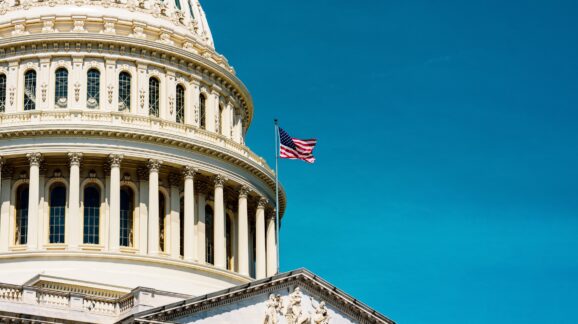Congress Has Bad Ideas on Tech Regulation: CEI Report

Photo Credit: Getty
Congress has some bad ideas on regulating Big Tech, and a new Competitive Enterprise Institute report breaks it all down.
“Lawmakers say they are concerned with promoting innovation, competition, and choice, but the bills they’ve put forward impose new regulations that will burden consumers with higher costs along with poorer quality products and fewer innovations,” said Alex Reinauer, a CEI research fellow and author of the report, Terrible Tech Bills from the 117th Congress.
“Congress should resist the urge to copy Europe on antitrust and tech regulation policies that undermine innovation,” said Reinauer.
Altogether, the terrible tech bills envision new regulations on mobile apps, advertising, merger review, content moderation, liability protection, algorithms, and data collection, courtesy of federal antitrust enforcers at the Department of Justice and the Federal Trade Commission.
The CEI report singles out 10 bills as the worst of the worst:
- The American Innovation and Choice Online Act (H.R. 3816, S. 2992) would prohibit companies like Amazon, Apple, and Google from self-preferencing their own products and services, like Google Maps and Apple’s preinstalling of its iMessage and FaceTime apps.
- The Open App Markets Act (H.R. 7030, S. 2710), a particularly intrusive piece of legislation, would force companies to allow “sideloading” (app installation on a mobile device without using an official app-distribution method), despite significant security risks.
- The Prohibiting Anti-Competitive Mergers Act of 2022 (H.R. 7101, S. 3847) would ban mergers in a bunch of circumstances, to the detriment of everyone.
- The EARN IT Act would limit liability protections for online platforms, creating many more problems than it solves.
- The Platform Competition and Opportunity Act of 2021 (S. 3197, H.R. 3826) would prevent some companies from buying tech startups, doing far more to crush entrepreneurial dreams and opportunities than facilitate competition.
- The Augmenting Compatibility and Competition by Enabling Service Switching (ACCESS) Act (H.R. 3849), the most convolutedly named bill on the list, mandates a type of data sharing that poses massive privacy concerns and risks.
- The Filter Bubble Transparency Act (H.R. 5921, S. 2024) would force social media platforms to let users view feeds/posts chronologically instead of by algorithms – a very intrusive solution in search of a problem.
- The Ending Platform Monopolies Act (H.R. 3825) not only bans self-preferencing but outright prohibits platform companies from distributing their own products. Buy what you want but not if it’s a house brand.
- The Banning Surveillance Advertising Act of 2022 (H.R. 6416, S. 3520) bans targeted advertising, making it harder to market things that people might actually want.
- The Fair Repair Act (H.R. 4006, S. 3830) would require manufactures of mobile phones, tablets, and laptops to make certain diagnostic material, tools, and parts available for sale to users and repair shops — despite massive copyright and security concerns.
View the report, Terrible Tech Bills from the 117th Congress by Alex Reinauer, on cei.org